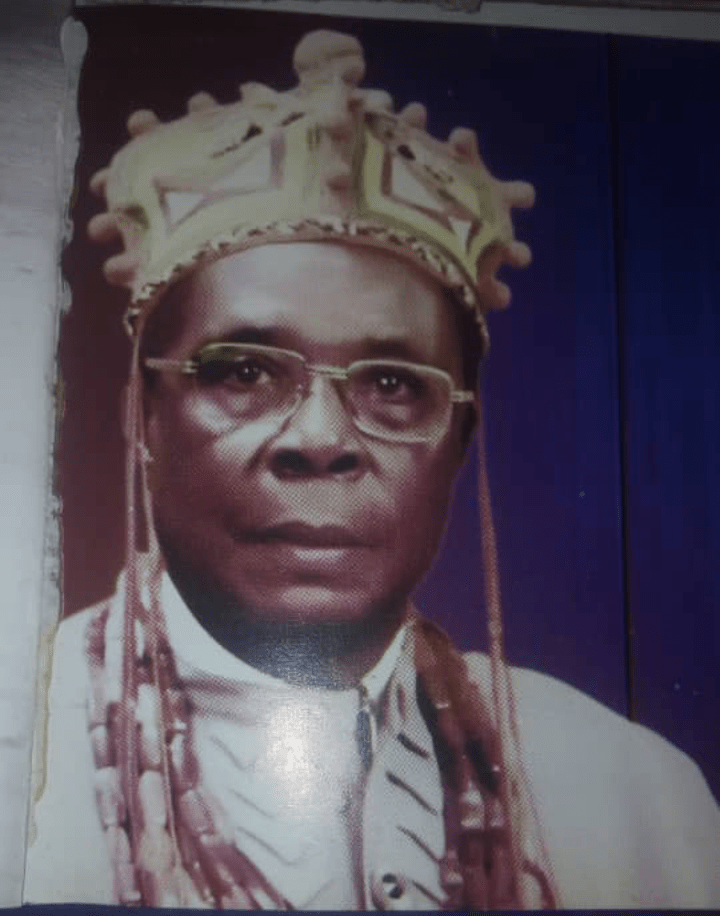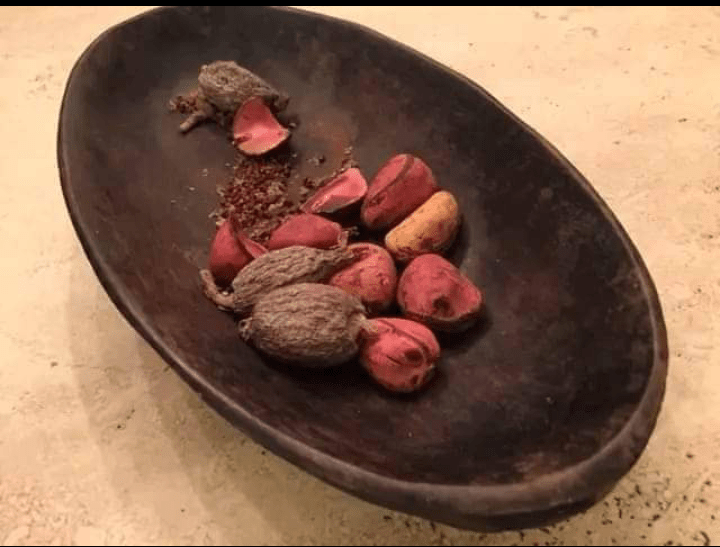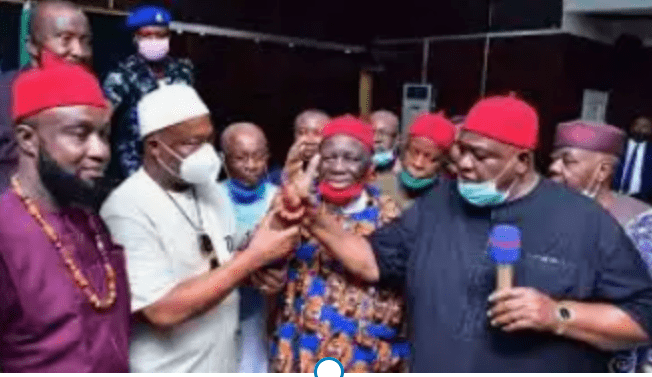
By Chinedu Max Egere (9News Owerri)
A public analyst had once thrown a question to the chairman, Imo State Council of Traditional Rulers in an open letter published in some newspapers that also went viral through the social media, thus ‘Are Igbo cultures, customs and traditions under attack in Imo communities?’
To me, as Member, Nigerian Guild of Editors NGE and public analyst, issues of such magnitude are expedient enough as to attract responses given the revered nature of the royal stools in the autonomous communities in Imo.
That question anxiously led me to go deeply into ‘investigative journalism’ on such critical issues that bother on cultures, custom s and traditions. On this good ground, if a ‘race’ can be described as a large group of people distinguished from others on the basis of a common heritage, then Igbo is a ‘race’ in Nigeria and if also that a ‘tribe’ is socially, ethnically and politically cohesive group of people, then Igbo is a ‘tribe’ in Nigeria.
On the other hand, if a community is a group of people sharing a common understanding, who reveal themselves by using the same language or dialect, manner and tradition, then every Imo community should be treated as such in Imo state.
More to the foregoing, if ‘autonomy’ is the freedom that a place or organization has, to control itself, then autonomous communities in Imo should be allowed to dance to the tones of their cultures, traditions and customs especially as they affect their royal stools aware that such processes go with peace and tranquility. Each autonomous community in Imo has her own cultures, customs and traditions and such should be respected and honoured aware of their traditional consequences upon their violations in the communities.
In the Igbo communities, their royal stools are usually of two types as their traditions demand. In this regard, while some communities tilt towards hereditary system, others stick to the rotatory system.

Some ancient communities that have long been identified with the hereditary system of Ezeship based on investigations include Egbu, Emekuku, Oguta, Owerri etc.
In Egbu, Owerri North Local Government area of Imo state, the famous traditional stool in Egbukole-Orisakwe dynasty has been in existence for well over 100 years. There, the traditional processes of succession of their Eze that has passed on cannot be compromised.
The royal family of Egbukole – Orisakwe would traditionally select the ‘ suitable person’ and present him to the Oha Egbu in council whose members would traditionally present him to the Egbu community and cap him. All the traditional processes must first be duly and customarily carried out before presenting the person to the government and for staff of office. This was the traditional process that led to the emergence of HRM, Eze Mitchell Uchenna Egbukole ,Ochoronma vi of Egbu kingdom.
In Emekuku, Owerri North LGA, traditional records are clear in that well respected autonomous community. Investigations show that when their ‘Eze’ dies, the onus traditionally lies on the Obi Royal Family, at the instance of the principal members of the famous Obi royal family to select the ‘Eze’. The ezeship has for a century been domiciled in Obi royal family.
This was exactly the peacefully traditional order that brought the late Eze Peter Ugochukwu Obi, the Ezeukwu III of Emekuku to the ‘Obi Royal Throne’. He was selected by the principal members of the Obi Ejeshi Ajoku Abuba dynasty in keeping with the traditional selection process of the successor to the age long throne.

Report has it that the late Eze inherited the relics in the traditional palace, which must,according to the tradition of the ancient kingdom be given to who would succeed him. In Emekuku, in line with her tradition on the royal stool, the traditional role of the council of the Ezelukwu Emekuku in general cannot be ignored.
Their traditional role must be accomplished in the process. Some of the sacred relics in the royal palace in Obi Royal family under heritage include the traditional staff called ‘Oshi Udele’ given by the ten villages; the traditional sword;Odu Inyinya,which has existed for 38 years ; the first stool of the community that has stayed for upwards of 45 years in Emekuku.
In Emekuku,the successor of the late Eze must be dressed up from the old existing palace as its continuity stance of ascendency to the throne cannot be compromised or politicized. There is no new beginning in the Emekuku ancient Kingdom. The community has age- long identities in history, education, health, religion etc.
It should be recalled that the spread of Christianity got to Onitsha and from there to the next port of call at Emekuku from where it sprang up to 300 mission stations across the states in the south east and south- south geo political zones.
The question is, why are those relics that are traditionally identified with the hereditary system of Emekuku royal stool still intact at the old palace of the late revered Eze Peter Ugochukwu Obi? Another question is, has he been replaced?
In the course of investigations and research, I drew the attention of the traditional ruler of Atta, who is my fellow and senior member of the Nigerian guild of Editors, Eze Geo Anika.
He worked in the Radio Nigeria. Eze Anika lent his voice on the hereditary system in the communities as having similar traditional processes among which is that when the Eze joins his ancestors, the royal family would, after the mourning period select the first son if he is suitable to the throne to replace his father, and if he accepts the offer, they would present him to the council of elders to carry on with the other stages of the processes prior to his staff of office.
He also said that in that hereditary system, the successor would inherit the key relics left behind by the dead traditional ruler. It was these similar traditional processes that peacefully produced the likes of Eze Chinedu Nzeribe of Oguta;Eze Prof. Gele Odibo of Nkwesi, the Late Eze Pharm. Emma Njemanze.

Violating or politicizing the cultures,customs and traditions that are associated with the royal stools in Imo communities are prone to giving room to communal crisis and might attract traditional consequences to such communities.
Chinedu Max Egere wrote from Owerri.
9News Nigeria (Owerri)For inquiries on this news contact 9News Nigeria Imo State @08036856526



 Bayelsa To Immortalise Late Nationalist Edwin Clark, As Dignitaries Pay Tribute
Bayelsa To Immortalise Late Nationalist Edwin Clark, As Dignitaries Pay Tribute




